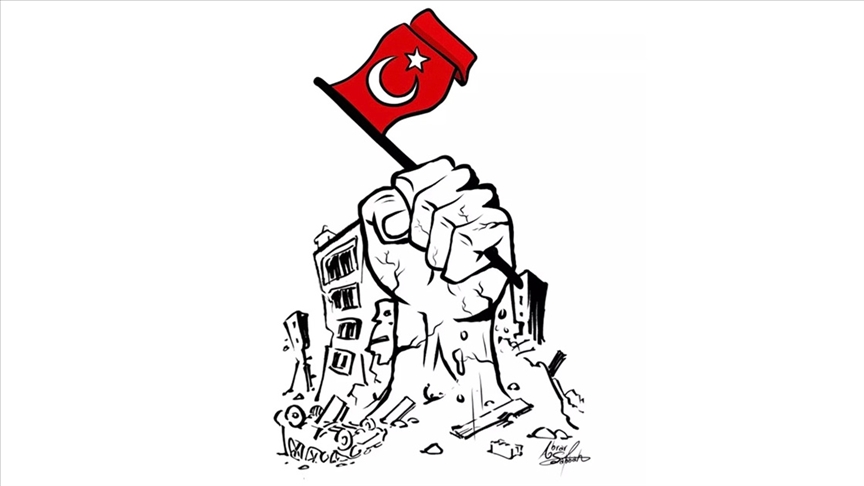The Messenger of Allah (pbuh) said: 'He who blesses me once, Allah blesses ten times.'
Salawat, sending blessings and benediction to the Messenger of Allah (pbuh), is both an obligation and source of blessings for Muslims in this word and the next.
Allah Almighty has made us the community of His beloved Messenger (pbuh). He has honored us by sending us a perfect guide. He has made our affairs easier by giving us the best example to follow and live by: "Indeed in the Messenger of Allah you have a good example to follow for him who hopes in (the Meeting with) Allah and the Last Day and remembers Allah much." (Qur'an:33/21)
It would indeed be most ungrateful to forget about the mercy and favor which is manifested in the sending of the Messengerof Allah (pbuh). Even our Lord reminds us to never forget the sending of the Prophet and to show our appreciation by sending peace and blessing on His Messenger (pbuh).
Salawat is an action which carries its own reward. With the mercy of Allah, reading salawat will improve our affairs in both worlds. However, to perform it in the most perfect way, there are some rules of etiquette we should keep in mind.
1. The way of reciting salawat:
According to a report by Abu Humaid as-Sa'idi, the Companions asked the Messenger of Allah (pbuh): Messenger of Allah, how should we bless you? He answered: Say: "0 Allah! bless Muhammad, his wives and his offspring as Thou didst bless Abraham, and grant favors to Muhammad, and his wives and his offspring as Thou didst grant favors to the family of Abraham; Thou art Praiseworthy and Glorious."
According to another report, the Messenger of Allah (pbuh) recommended saying: "0 Allah, exalt the mention of Muhammad and the family of Muhammad as you exalted the family of Abraham. You are Praised and Glorious. 0 Allah, bless Muhammad and the family of Muhammad as You blessed the family of Abraham. You are Praised and Glorious."
2. The time for reciting salawat:
Asking for peace and blessings to be sent to the Messenger of Allah (pbuh) is the part of every obligatory prayer. But apart from this, we should make use of other occasions as well, the most important ones are:
Every time we pray to Allah we should send blessings to Prophet Muhammad (pbuh). According to a narration by Fudalah ibn Ubayd, the Messenger of Allah (pbuh) heard a person praying. He did not mention the greatness of Allah, nor did he invoke blessings on the Prophet (pbuh). The Messenger of Allah (pbuh) said: "He made haste." He then called him and said to him: "If any of you prays, he should mention the exaltation of his Lord in the beginning and praise Him; he should then invoke blessings on the Prophet (pbuh); thereafter he should pray to Allah for anything he wishes." The Messenger of Allah (pbuh) also said that any supplication which does not include asking for peace and blessings on him will not be raised to Allah.
Every time we (or someone else in our company) mention the name of the Messenger of Allah (pbuh) we should send blessings. 'Imam Ali reported that the Messenger of Allah (pbuh) said, "The miser is the one in whose presence I am mentioned but he does not pray for me." So, we should take the time and send benedictions on him both in speech and writing.
We should send blessings on Fridays. The Prophet (pbuh) said: "Among the most excellent of your days is Friday; on it Adam was created, on it he died, on it the last trumpet will be blown, and on it the Cry will be heard, so invoke more blessings on me on that day, for your blessings will be submitted to me". The people asked: "0 Messenger of Allah, how can it be that our blessings will be submitted to you while your body is decayed?" He replied: "Allah the Exalted has prohibited the earth from consuming the bodies of Prophets".
After the call to prayer blessings should be sent. The Messenger of Allah (pbuh) said, "Whoever says upon hearing the call to prayer: '0 Allah, the Lord of this perfect call and of the established prayer, grant Muhammad the Wasilah (intermediary) and superiority, and raise him up to a praiseworthy position which You have promised him', it becomes incumbent upon me to intercede for him on the Day of Resurrection."
Blessings should be sent at the beginning and end of meetings and speeches. The Prophet (pbuh) said, "Whenever a group of people sit in a gathering in which they do not remember Allah the Exalted, nor supplicate to elevate the rank of their Prophet, such a gathering will be a cause of grief to them. If Allah wills, He will punish them, and if He wills He will forgive them." So the best way is to start and end every speech with praising the Almighty Allah and sending blessings on His Messenger (pbuh).
THE VIRTUES OF SALAWAT
Salawat has countless rewards and virtues. Allah Almighty reminds us of the importance of salawat by informing us that He Himself and the Angels also praise the Messenger of Allah (pbuh), and He specifically orders us to do so. Our Lord, with His endless Mercy, gives the greatest reward for the actions He has made obligatory to us. His Justice is absolute and the most loving. If we think about everyday life, usually when we perform an obligatory act we do not get any extra reward for it. We only get reward for the things we do above the obligatory ones. This is not so with Allah. With His all-encompassing Mercy, He will give the greatest reward for the things we are obliged to do.
Likewise, salawat has countless virtues and rewards. According to a narration by Abu Huraira, the Messenger of Allah (pbuh) said: "If anyone invokes blessings on me once, Allah will bless him ten times". Salawat is also a way to be close to the Messenger of Allah (pbuh) on the Day of Judgment.
Ibn Mas'ud reported that the Messenger of Allah (pbuh) said: "The people who will be nearest to me on the Day of Resurrection will be those who pray to Allah most often for me."
The Messenger of Allah (pbuh) himself drew our attention to the importance and reward of salawat. One of his Companions asked him: "0 Messenger of Allah (pbuh), I frequently invoke Allah to elevate your rank. How much of my supplications should I devote to you?" He said, "You may devote as much as you wish." When this Companion suggested a quarter, he said, "Do whatever you wish, but it will be better for you if you increase it." Then he suggested half, and the Messenger of Allah (pbuh) said, "Do whateveryou wish, but it will be better for you if you increase it." He suggested two-thirds, and he said, "Do whatever you wish but it will be better for you if you increase it." Finally, the Companion said, "Shall I devote all my prayers to invoking Allah to elevate your rank?" He said, "Then you will be freed from your worries and your sins will be forgiven."
We should do our best to understand the honor and responsibility of belonging to the community of the Messenger of Allah (pbuh). We should show our gratitude and appreciation to the Lord of the Worlds for sending His Messenger (pbuh) to us. And we should prove our understanding by obeying the command of salawat willingly and respectfully. May our Lord include us with the ones who will be close to His Messenger (pbuh) on the Day of Judgment and who will have the honor of his intercession. Amen!
Subscribe to:
Post Comments (Atom)









No comments:
Post a Comment